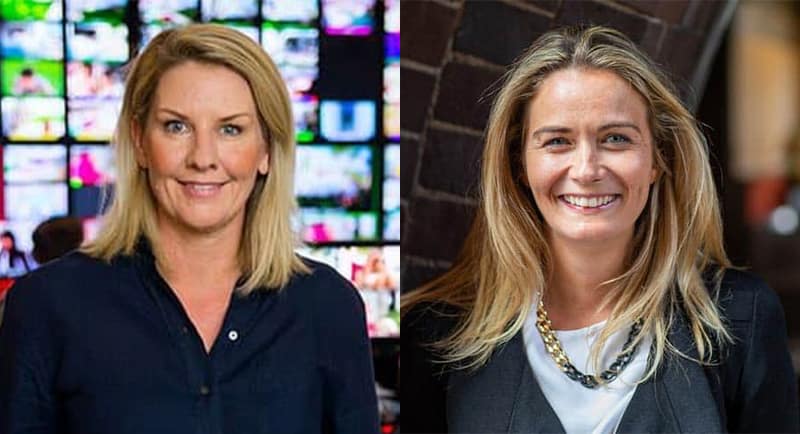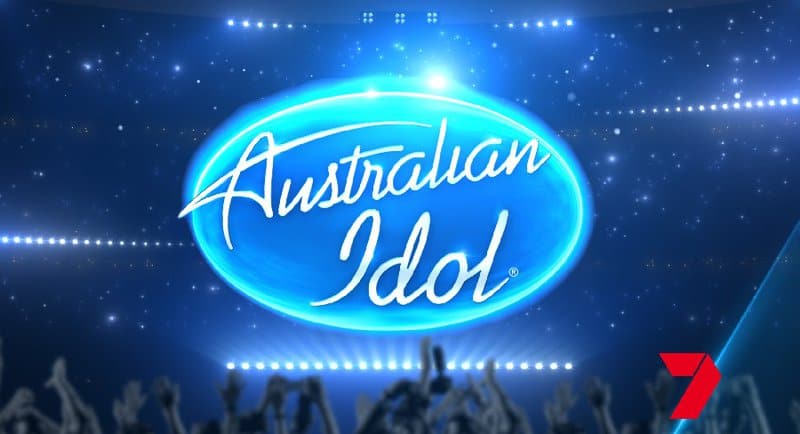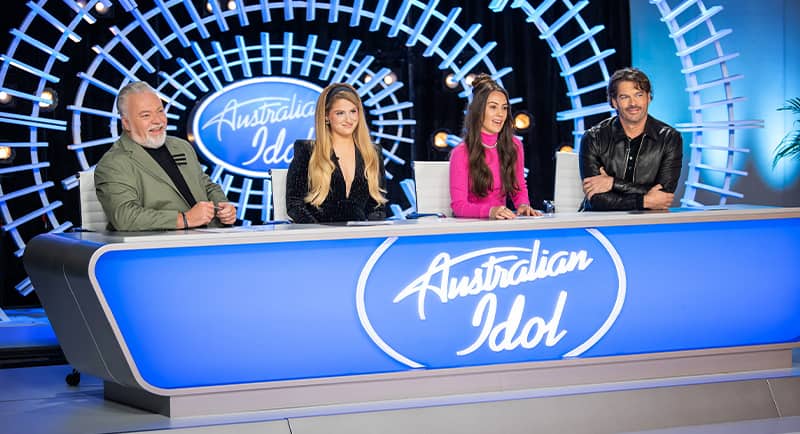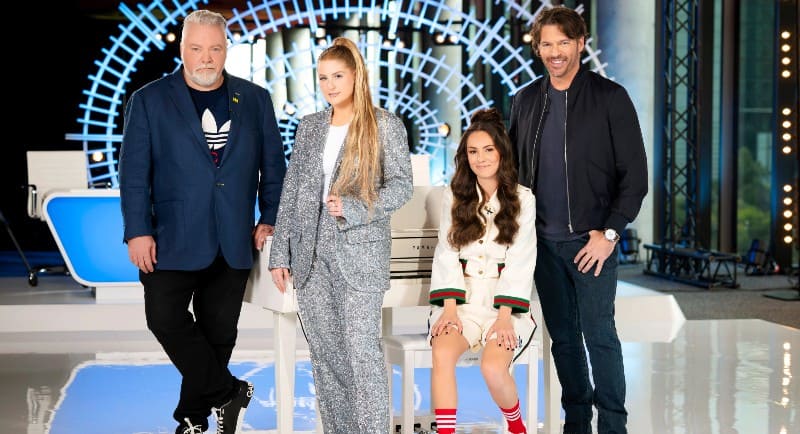The last time the iconic Australian Idol theme song rang out in Aussie lounge rooms was in 2009, when the initial run of the show wrapped up after seven seasons. 14 years later, the spotlight is back on Seven as it gets ready to launch its reboot of the singing competition.
Mediaweek spoke to Majella Hay, Seven’s head of entertainment and Katie Finney, director of 7RED, ahead of Australian Idol’s premiere, at 7.30pm Monday, January 30 on Channel Seven and 7plus.
14 years after the original series of Australian Idol wrapped up, the pair say that there are a number of factors that made now the right time to bring the format back.
Hay: “We know that Australians love nostalgia. We know with this brand that a lot of people remember when it was around, and that there’s also another generation that has heard about it and is incredibly excited. It’s the biggest music show in the world, and it does make stars.
“For every reason – coming off the back of Covid, the tone of the show, the ability to go regional, the ability to tap into that nostalgia, the ability to make stars – all of that combined made it a perfect decision for us.”
Finney: “It is so exciting for brands that they can go through the journey and show up in different ways, and leverage the huge ecosystem that we have now 14 years on. The way that Idol was consumed back then was just on a linear channel, or maybe catching up on a set top box. Now it’s everywhere and across so many of our assets, and also in our brands’ channels as well.”

Hay and Finney
From a brand opportunity perspective, Finney says that the evolution in technology over the past 14 years means that Seven will be able to help advertisers reach wider audiences – no matter where those audiences are.
Finney: “Where things have changed is the way that we now have our data through OZTam with VOZ, we can actually optimise based on audiences. As this program runs for a series of weeks, we’re going to be really pointed in ensuring that we’re following those eyeballs, whether it’s across metro, regional, VOD, a live stream in the 7Plus environment, or catching on demand as well. So that’s also really exciting that we’re now able to do that.”
One of the promotional lines for the new season is that live television is back. When it came to the decision to run live episodes of Australian Idol as opposed to pre-recording, Finney and Hay point to the immediacy and viewer involvement as major selling points.
Finney: “To have brands show up in such an exciting, emotional and uplifting way is fantastic. The live element is brilliant, because you get that viewer engagement, you get that piece of ‘I need to watch it tonight’ television – whether it’s live at 7.30 or on the way on the way to work the next day.”
Hay: “The beauty of live is that viewer engagement, especially in any show where you get to vote as a viewer, is that you are actually are determining the outcome. They can really own it, we’re saying it’s your Australian Idol. It’s not just in one solitary voting experience towards the end of the season, there are multiple opportunities for Australian audiences to engage and get behind their favourite.”

The world is a very different place to what it was when the original series was airing – whilst there used to be limited pathways to becoming a professional singer, these days artists are frequently discovered throught YouTube of TikTok. Despite social media, Hay says that Idol holds up as a vert attractive pathway for aspiring singers.
Hay: “Idol creates stars, and not just domestically in the Australian iteration of the show, but globally. You go through the list and you’re talking about people like Adam Lambert, Guy Sebastian, Jess Mauboy – we can go on and on.
“A lot of artists do start out on YouTube or TikTok, but what is incomparable is walking into a room and coming face to face with Meghan Trainor, and having her actually hear you sing, knowing your name, and giving you advice on whether you can cut it in this industry. Then they can take away the good bits, they can take away the constructive criticism. Singing in your bedroom isn’t going to give you that.”
Meghan Trainor is just one of the judges tackling this season, alongside Harry Connick Jr, Amy Shark, and Kyle Sandilands – and guest judge Marcia Hines. For Hay, putting together the judging panel was a potential minefield that worked out in the best possible way.
Hay: “It’s always a tricky thing when you’re putting together these panels, because you never know how it’s going to go until they sit on those seats for the first day. You try and get them together socially beforehand, but until they actually sit there on the first day and work out what their place is, it’s a little bit of a roll of the dice. We got lucky, and we could not be happier with how they all are.
“They are all very different – as you want them to be from a content perspective, from a genre perspective, from an age perspective, and from a career perspective. Combined, the four of them together have amazing chemistry and an amazing ability to put these contestants on the right track.”

Idol judges Kyle Sandilands, Meghan Trainor, Amy Shark, and Harry Connick Jr.
Taking the role of major broadcast partners for Australian Idol are Optus and Arnott’s Tim Tams, with other key sponsors including Samsung and Universal Pictures Australia. Finney says that the return of Idol “gives brands the opportunity to be connected to the power of positivity.”
Finney: “Optus and Tim Tams are both huge Australian brands. Optus is all about optimism and that power of Yes, and Idol is the ultimate Yes show – you say yes, the judges say yes to you, and you’re on that journey.
“With Tim Tams, it’s that indulgence, it’s that celebration, it’s doing things together as a family. That’s what Idol is going to be, it’s a brand safe environment so you can sit there as a family, or on your own, and have that excitement of being part of Australia and part of the culture.”
The Idol format has been a global success story for over two decades, having been adapted in over 56 regions and broadcast in 150 countries. For Hay, it’s the journey that contestants go on that keeps audiences coming back for more.
Hay: “I love seeing the bad singers as much as the good singers, I think that is a fantastic point for Idol. But the biggest thing, I think, is just seeing that transformation – seeing someone who’s 15 in their hometown, and then within a matter of weeks, they’re singing in front of a live audience and a live band. We’ve given them some styling tips, and they’ve had some music tips, and they are on their way to becoming a star.
“Looking back at that first audition when they get to the grand finale is just extraordinary, and I think that’s what pulls you through. Everyone loves that transformation, and you’re not going to be disappointed in Idol on that.”
–
Top Image: Kyle Sandilands, Meghan Trainor, Amy Shark, and Harry Conick Jr.
